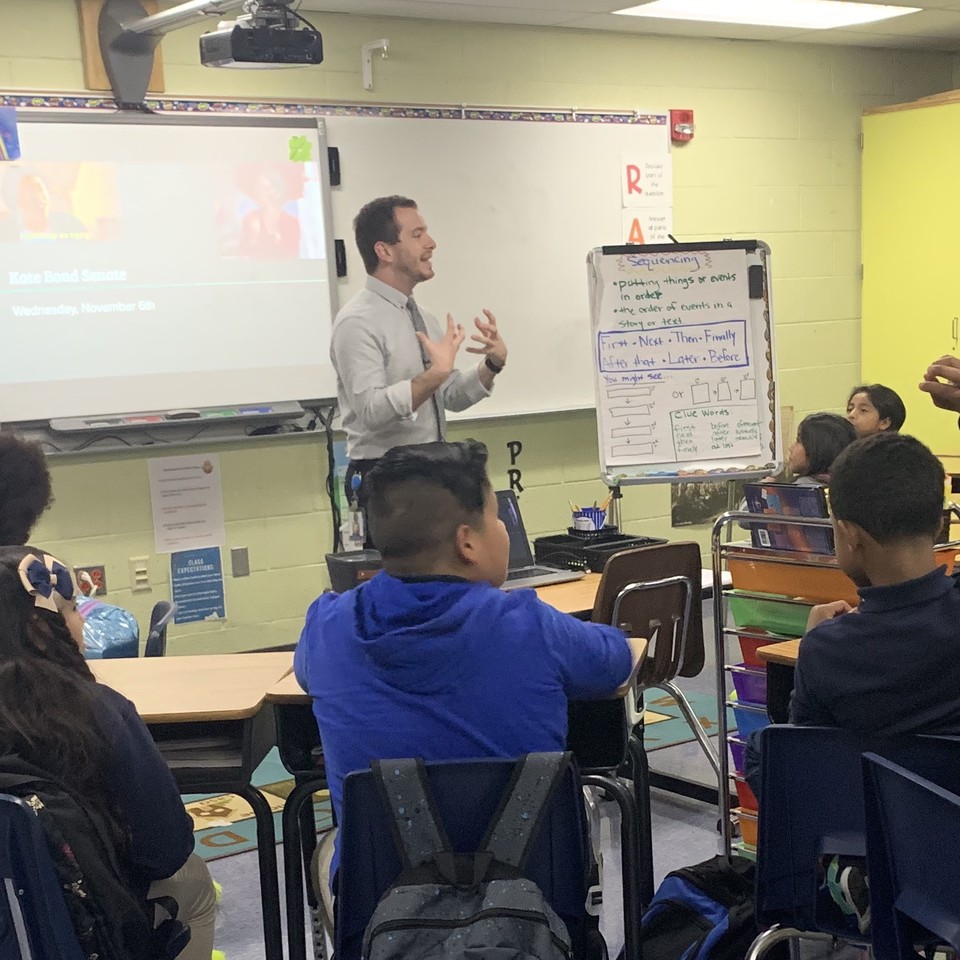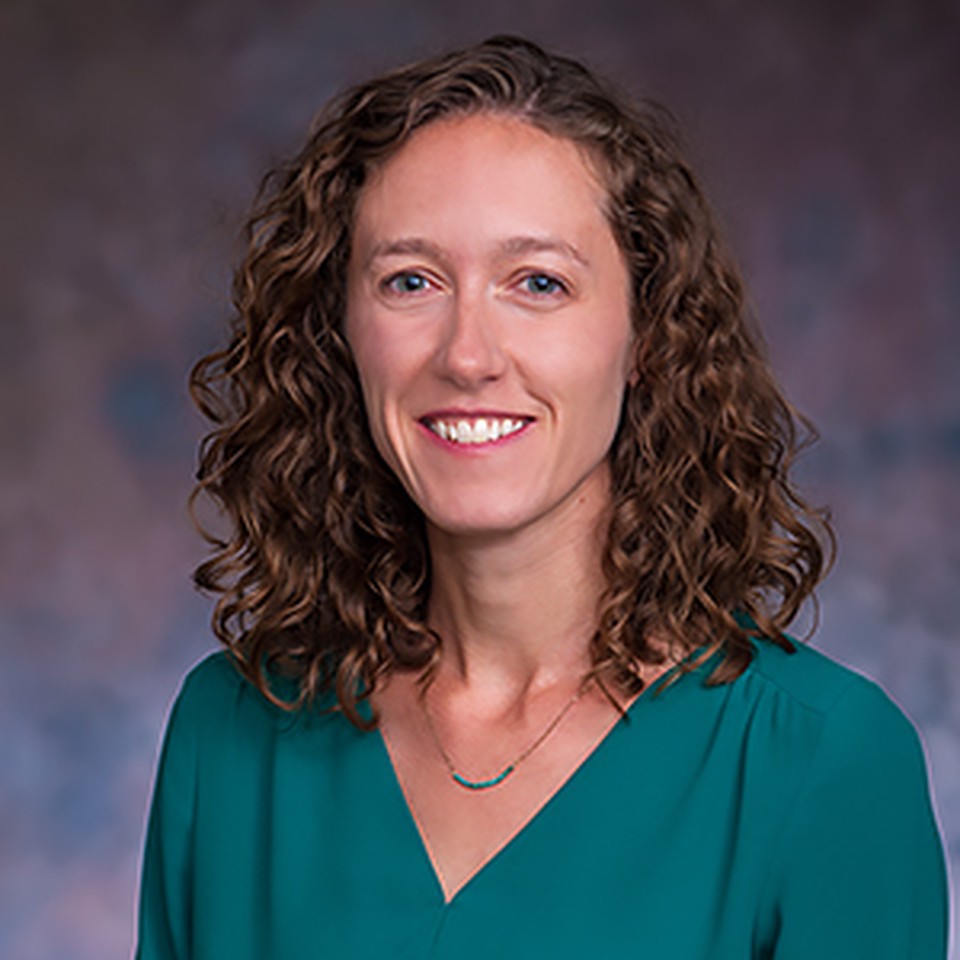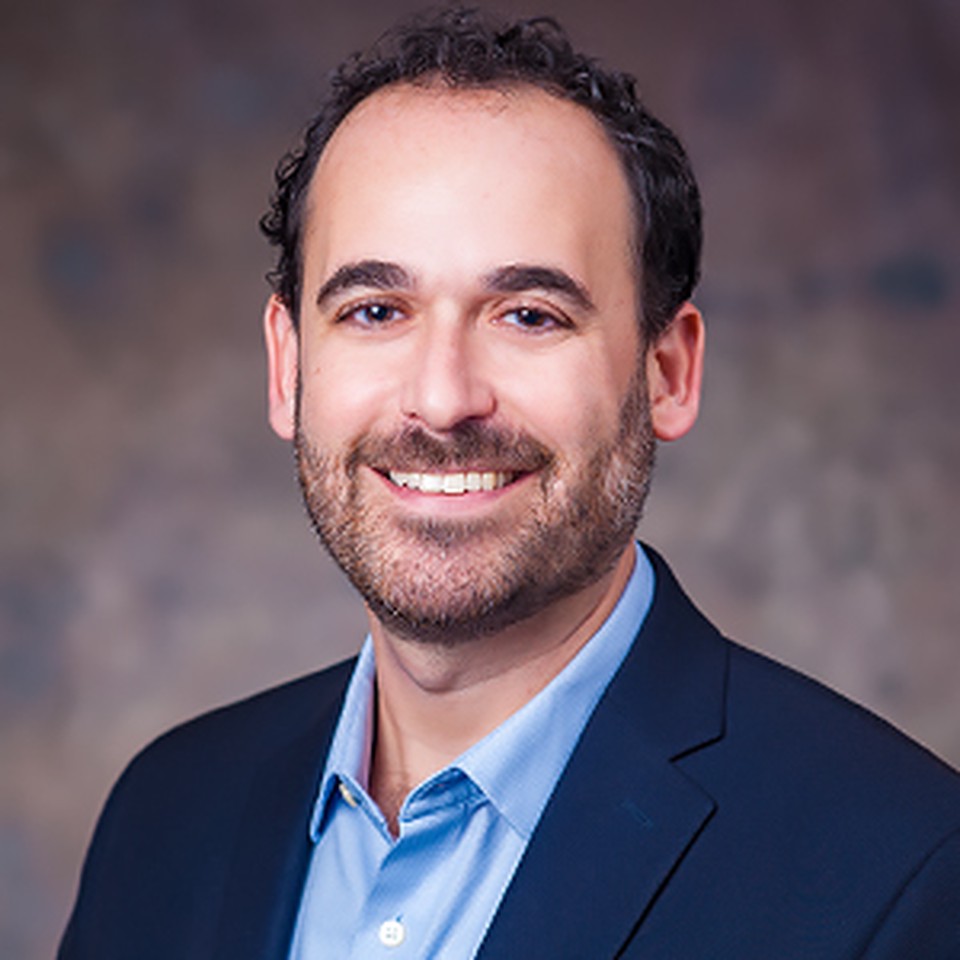Online Master of Education (MEd) in Education Policy and Leadership
Request Information
Complete the form below to download a brochure and learn more about American University’s online education programs.
A Master of Education Degree That Drives Social Change
Become a trusted leader with the skills and knowledge to effect change at local, state, and federal levels with your online Master of Education (MEd) in Education Policy and Leadership. As an MEd student, you’ll learn how to evaluate, create, and research in education and implement effective educational policy that facilitates exceptional learning experiences for all learners. With an emphasis on educational policy, leadership, law, economics, equity, and research in education, our MEd degree prepares you with the tools to transform systems for a brighter and more equitable future.
The online Master of Education (MEd) in Education Policy and Leadership can empower you to change the course of American education through innovative, evidence-based, and antiracist programs and policies. As an American University graduate, you’ll join a network of passionate faculty, students, and alumni who are reshaping education in the United States.
Required Credits
30 credits –
Complete the program in less than two years
Hands-On Experience
Real-world consultancy project
Alumni Network
Join an active and supportive alumni network
Experienced Faculty
Learn from current and former education policy makers
Program Highlights
Graduates of the MEd program will be equipped with the skills every education leader needs to be effective, including strategic budgeting, collaborative inquiry, policy analysis, partnership building, learning science, and program evaluation. We strive to hone students’ knowledge and develop their skills and beliefs in the following four domains:
Analyze Systems, Policies, and Leadership
Students will be able to frame problems, understanding the role racialized identities and positionalities play to critically analyze education policies and leadership strategies using data, policy/legal/economic/equity frameworks, real-world experience, and other evidence.
Research
Students will be able to leverage research practices to evaluate and synthesize qualitative and quantitative data to inform antiracist decisions and continuous improvement.
Cross-Boundary and Antiracist Leadership
Students will be able to provide cross-boundary and antiracist leadership by focusing on collaboration, communications, advocacy, and management.
Systems Thinking and Change
Students will be able to disrupt and dismantle elements of oppressive education and other social systems to reimagine and rebuild antiracist systems that support all students.
These domains serve as the backbone of our program and live out in each course, module, and residency experience that our students engage in. After completing their coursework and their problem of practice dissertation, students will have the policy, leadership, and research skills necessary to serve in senior positions in school district central offices, independent schools, nonprofit organizations, government agencies, advocacy organizations, and more.
The Master of Education Online Cohort Experience
Peer learning and a sustained learning network are essential hallmarks of the MEd degree program. As a result, students will progress through the program as part of a cohort, taking the same courses, and accomplishing program milestones together. We intentionally build a diverse cohort of students to contribute to the dynamic learning environment in the program. Learning will occur through robust dialogue, shared learning experiences, and presenting current professional work and doctoral research.


I chose to join the School of Education because not only is it my passion, but I believe it is my route to serve and empower Black Communities.
Lamar Weir
MEd Class of ’20
Online Master of Education Curriculum
The online Master of Education (MEd) in Education Policy and Leadership provides teachers and other professionals with the knowledge and skills to transform schools and school systems. Its focus on policy studies prepares graduates to serve as leaders in organizations—including federal and state education agencies, school districts, charter organizations, and nonprofits—that implement education policies and programs. Students enroll in two courses each semester and complete the program within a twenty-month period.
Course Schedule
To complete the online Master of Education (MEd) in Education Policy and Leadership, students must complete 30 credit hours of approved graduate work, including a three-hour proseminar experience in their final semester.
2 Hours
Synchronous
Live online classes with remote students in your cohort attended according to a specific schedule.
+
1-2 Hours
Asynchronous
Self-paced discussions and other course-related work.
+
5-7 Hours
Assignments
Homework, projects, research, etc.
=
8-11 Hours
Total Weekly Hours
Hours are estimates and subject to change per term course.
What I love most about the program is that I am developing skills that most education leaders do not have, such as data analysis, organization leadership, application of economic principles, and examination of legal issues.
Nicole Stohmann
International Student, Class of ’20

MEd Degree Coursework
SEMESTER 1
Students examine organizational change and leadership in educational organizations, including K-12 schools, federal and state agencies, school districts, and charter school management organizations. Students analyze theories and approaches for management, strategic planning, decentralization versus centralization, organizational learning, stakeholder engagement, and personal leadership.
Students examine major public policy issues and theories in American education through the three-phase lens of policy design, policy adoption, and policy implementation. They learn to describe tensions in federal, state, and local education policies with reference to historical and international comparisons, as well as to evaluate the use of various education policy tools. Policy issues considered include standards and accountability, whole-district reform, school choice, teacher quality, and college and career readiness.
SEMESTER 2
Students are introduced to concepts and principles of social science research design. Observation, interview and survey design, literature reviews, development of problem statements and research questions, surveys of quantitative and qualitative data analyses, and formative and summative evaluation techniques are emphasized. Students demonstrate their competencies by engaging in a small-scale research study.
Students examine legal issues relating to reforming elementary and secondary education through an analysis of federal and state court cases. They identify important legal standards/rules and explore how legal precedents could be applied to different situations across the country. Students also analyze institutional reform litigation such as school finance and voluntary desegregation; federal and state educational authority, including civil rights enforcement; local educational authority, including school boards and collective bargaining agreements; and legal conditions and for school improvements.
SEMESTER 3
Students learn about how educational organizations, including schools, school districts, and state agencies, implement education programs and policies. Students learn approaches to program management, including how to use data to set performance targets, make strategic improvement decisions, assess programs, and prioritize changes. Students are also introduced to basic grant writing and administration, including enforcement, monitoring, and support for education grants.
SEMESTER 4
Analysis of and practice in the design of quantitative educational research. Emphasizes the nature and function of quantitative data gathering and analysis and the statistical approaches and techniques utilized to obtain particular outcomes. Usually Offered: spring.
Students learn how to use economic principles, such as productivity and return on investment, to evaluate education policies and programs. They apply these economic analytical approaches to education policies and programs such as value-added assessments, teacher compensation, early childhood education, and class-size reduction. Students also examine basic resource allocation and education finance, including costing-out models, school-district budgeting, Title I funding, and weighted-student formulas.
OR
This course provides a comprehensive overview of qualitative methods used in social science research. Students develop the skills and competencies necessary to design qualitative inquiry, including defining research questions, writing a literature review, choosing an appropriate methodology (e.g., ethnography, case studies, participatory action research), and determining methods of data collection (e.g., interviews, observations, visual methods), and analysis (e.g., content analysis, discourse analysis). Students explore the philosophical foundations of qualitative research methods, power and ethics in human subjects research, and monitoring and evaluation through a critical and decolonial lens.
Students learn how to use economic principles, such as productivity and return on investment, to evaluate education policies and programs. They apply these economic analytical approaches to education policies and programs such as value-added assessments, teacher compensation, early childhood education, and class-size reduction. Students also examine basic resource allocation and education finance, including costing-out models, school-district budgeting, Title I funding, and weighted-student formulas.
SEMESTER 5
Working in small groups, students serve as consultants to an educational organization on a pressing issue of policy or practice. During this field-based project, they apply skills developed through their program of study in education policy and leadership. Students learn approaches to project management, client relations, analytical design, and project presentation, as well as receive support for transitions into policy and leadership careers.

I chose to join the School of Education because I wanted to broaden my impact as I transition out of the classroom. Securing a Master’s in Education Policy and Leadership allows me to take the vital experiences I’ve had in a classroom, with my students, and first-hand experience with policy implementation to a broader level in hopes of gaining a position in policy leadership.
Koedy Harper
Class of 2020
Online Master of Education Job Opportunities
Our online MEd in Education Policy and Leadership prepares graduates for a variety of roles outside the classroom.
The following is a sample of educational leadership roles and their median annual wages per the U.S. Bureau of Labor Statistics or Glassdoor (2024).
Job
Median Annual Salary
$40k
$250k
Instructional coordinator
$74,620
Learning specialist
$89,000
Policy analyst
$102,000
Dean of academics
$102,610
Principal
$103,460
Director of curriculum and instruction
$114,000
Assistant director of finance and operations
$156,100
Education program manager
$159,000
Director of inclusion
$248,000
Online Master of Education Alumni & Outcomes
Our alumni are working to change the lives of students throughout the country and the world. Within six months of completing their programs, 100 percent of American University’s MEd degree graduates are working, continuing their education, or both.*
*American University does not guarantee employment after graduation.
Recent AU MEd Degree Graduates Excel in Today’s Competitive Marketplace
“Our team at the Opportunity Institute was ready to take on a big and complex multi-state project relating to equity in teacher pension policies. The students we worked with from American University’s consultancy proseminar were sharp, reliable, and focused, and their timely work helped us move forward with some significant work. The work we’ve done together over this semester has pointed a way forward for us and our partners on this topic, and we will definitely be engaging with the program again in the future.”
Senior Program Director, Federal and National Networks | The Opportunities Institute

Key Dates & Deadlines
Applications require a $55 application fee.
MEd Faculty Members

Emily Grossnickle Peterson

Kecia Hayes

Reuben Jacobson

Phelton Moss

Eugene Pringle

Michael Scott

Robert Shand

Jason Snyder

Jennifer Steele
Connect with Us
Speak to an Enrollment Advisor
Email: soeonline@american.edu
Call: 202-807-6173
Master of Education Online Events
Schedule a Tour
Our online students, as well as prospective students, are always welcome to tour our campus. Email: education@american.edu
FAQs
Students who complete the online Master of Education policy track are prepared to work in a wide variety of settings, including school district central offices, state education organizations, education nonprofits, and the US Department of Education.
Alumni of this program have worked in the DC Public Schools central office, New America, KIPP public charter schools, TNTP (formerly known as The New Teacher Project), DC Board of Education, E.L. Haynes Public Charter School, RAND Corporation, and the US Department of Education. Our MEd degree graduates are also well positioned to pursue PhDs in education policy and research.
Within six months of completing their programs, 93 percent of American University’s College of Arts and Sciences graduates are working, continuing their education, or both. Though American University cannot guarantee employment after graduation, we do everything we can through our career services programs to help students identify the right career pathways and opportunities for them.
American University’s online master of education degree includes a foundation in law, policy, economics, antiracism, and other disciplines that allow students to understand the educational system, its problems, and the necessary solutions from a holistic, systemic point of view.
Our faculty members have worked in the fields they teach, which means they know that formulating beautiful-sounding policy is only a first step in effecting real change.
For example, our faculty members have worked in the US Department of Education and consulted on the Obama Administration’s Reach Higher Initiative. Others have worked for education-focused nonprofits and research organizations. After learning from professors with real-world experience, graduates of the MEd degree program leave prepared to join an American University alumni network that is transforming education in the United States.
The majority of students complete the online MEd degree in two years, and eligible students in the hybrid program can complete the program in one year. Learn more about our one-year hybrid program.
Up to six credit hours may be transferred from work completed at other institutions by approval of the program director at the time of course enrollment. Courses must have been taken in the past five years and earned a grade of B or higher.
If you live in the DC area, yes! Learn more about our one-year hybrid program.
